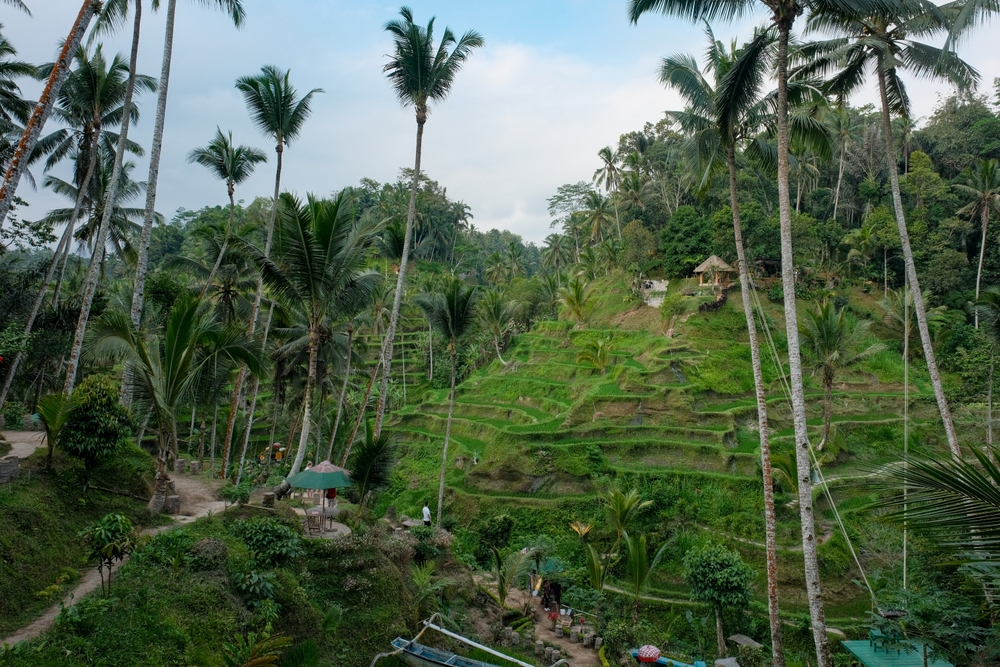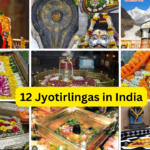Everyone knows Bali as a premier holiday spot. It’s legendary for its stunning beaches, vibrant culture, and world-class cuisine. But recently, a lot of travelers have been asking: “Is Bali still the magical destination it once was?” With so many new places rising in popularity and Bali becoming visibly busier, some wonder if it has lost its unique charm.
A few years ago, the stories were all about quiet, hidden beaches, genuinely friendly locals, and stretches of untouched nature. Today, the landscape includes more hotels, trendy shops, and, inevitably, more tourists. Certain areas have changed significantly from their pristine past.
However, the core essence of Bali remains captivating. It still offers breathtaking temples, mesmerising traditional dances, and authentic local markets found nowhere else. It’s crucial, though, to address contemporary concerns like over-tourism, traffic congestion, and environmental impact to get a clear picture.
In this comprehensive guide, we’ll dive deep. We’ll explore what has transformed, what has stayed the same, and give you an honest overview of Bali today. By the end, you’ll be well-equipped to decide whether Bali is the perfect destination for your next trip.
The Undeniable Allure of Bali’s Diverse Landscape

Bali stands as a testament to nature’s artistry, showcasing a myriad of landscapes that captivate the soul, offering both serenity and adventure.
The Iconic Green Heart and Blue Coast
The island’s heart, Ubud, is internationally famous for its intricately designed terraced rice paddies. These expansive green vistas offer a serene and meditative sight. Meanwhile, the coastal regions boast spectacular beaches like Uluwatu, where clear azure waters shimmer under the sun, providing a tranquil setting that simultaneously relaxes the mind and invigorates the spirit.
Thrills: Volcanoes, Waterfalls, and Surf Breaks
For the adventurous traveler, Bali presents experiences hard to rival. The journey to the summit of Mount Batur, an active volcano, is exhilarating, rewarding those who brave the pre-dawn trek with a majestic sunrise casting a golden hue over the island. Furthermore, hidden within Bali’s verdant forests are gems like the Sekumpul and Tegenungan waterfalls. These secluded spots offer a peaceful escape, where the sound of cascading water creates a rejuvenating sanctuary.
Bali’s Vibrant Cultural Pulse: More Than Just a Beach

Bali is much more than a tropical getaway; it’s a living, breathing museum of a vibrant culture that has evolved over centuries, deeply rooted in the philosophy of Tri Hita Karana (harmony with God, people, and nature).
Temples: Guardians of Heritage
The island pulses with traditions that can be seen, heard, and felt everywhere. Uluwatu and Tanah Lot stand not just as structures of religious significance, but as custodians of Bali’s history and heritage. Their dramatic locations, perched on sea cliffs and coastlines, not only offer spiritual solace but also treat visitors to some of the world’s most breathtaking sunsets.
Art, Dance, and Tradition
From the hypnotic beats of traditional Gamelan dances that tell ancient tales to the masterful strokes of artisans crafting timeless pieces in Ubud, Bali showcases a cultural panorama that invites visitors to fully immerse themselves. You can witness daily life woven with elaborate rituals and ceremonies, highlighting the genuine devotion of the Balinese people.
Crucial Update: Starting in February , all international tourists arriving in Bali must pay a Tourist Levy of IDR 150,000 (approx. $10 USD). This fee is strictly used to fund environmental and cultural preservation efforts, demonstrating the island’s commitment to sustainable tourism.
The Enduring Warmth of Balinese Hospitality

At the very heart of Bali’s allure are its inhabitants, who radiate an authenticity and warmth that makes the island legendary.
Genuine Connection, Not Just Service
The Balinese, with their deep-rooted values and traditions, possess an innate ability to make visitors feel not merely like passing tourists but like honored guests. Their hospitality is a genuine extension of their community spirit and respect for others.
Rich Cultural Exchange
Every simple conversation with a local has the potential to transform into a rich cultural exchange. Their smiles are more than just courteous gestures; they are invitations to learn, share, and celebrate together. Whether it’s a vendor explaining the significance of an artifact or a farmer sharing tales of the rice fields, these interactions weave the authentic, personal fabric of a traveler’s Bali experience, making it truly unforgettable.
🍽️ A Culinary Journey: Tasting the Flavours of Bali
A trip to Bali is a treat not just for the eyes, but for the palate. The island’s food scene is an exciting mix of rich tastes, aromatic spices, and age-old cooking traditions.
Authentic Warung Experience
Imagine sitting at a simple local eatery, known as a ‘warung,’ and savouring dishes brimming with unique flavours. Balinese cuisine is a vibrant blend of Indonesian influences with its own distinct style.
Must-Try Local Delicacies
You simply must try ‘Babi Guling’ (suckling pig), which is slowly roasted to achieve juicy meat and crispy skin, often accompanied by fiery sambal. Another favourite is ‘Lawar,’ a savoury mix of vegetables, coconut, and spices. These dishes, along with fresh seafood grilled on the beach, prove why many visitors fall deeply in love with Bali’s food culture.
💰 Exceptional Value for Money: Affordable Luxury
Bali has a unique knack for making everyone feel special, regardless of their budget. Whether you’re a budget-conscious backpacker or looking to splurge, Bali offers high-quality experiences without necessitating an empty wallet.
Luxury for Less
The beautiful thing about this island is its ability to offer truly luxurious experiences at a fraction of the cost found in other top global destinations.
- Budget Accommodation: Numerous guesthouses and homestays offer comfort, cleanliness, and a genuine taste of local life for very affordable rates.
- High-End Villas: If luxury is what you seek, imagine a high-end villa with a private infinity pool overlooking the ocean or rice fields. The key advantage is that these lavish stays often come at a significantly lower price point than equivalent options elsewhere, making luxury accessible.
📝 Planning Your Ultimate Bali Trip in 2025
What Are Your Travel Goals?
Determining your priorities will shape your ideal Bali itinerary:
- Thrill-Seekers: Look into white-water rafting on the Ayung River, advanced surfing, and jungle trekking.
- Relaxation & Wellness: Ubud is the hub for world-class spa treatments, yoga, and meditation retreats.
- Culture & History: Focus on visiting the ancient temples, attending traditional dance performances, and exploring the craft villages.
Where Should You Stay in Bali?
- Ubud: The cultural and spiritual centre, nestled among rice fields. Perfect for wellness and culture buffs.
- Seminyak: A fashionable beach town known for upscale eateries, chic boutiques, and lively nightlife.
- Nusa Dua: Synonymous with pure luxury and high-end resorts. Its calm beaches are ideal for families.
- Canggu: The emerging favourite with great surf breaks, trendy cafes, and a more bohemian, laid-back atmosphere.
When Is the Best Time to Visit Bali?
The most favourable period stretches from April to October. This is the ‘dry season,’ characterised by sun-drenched days, blue skies, and minimal rainfall. This climate is perfect for beach activities, trekking, and exploring.
🧐 The Reality Check: Facing the Challenges
While Bali’s magic is undeniable, its rapid growth as a global travel hub has brought challenges that travelers should be aware of:
- Over-Tourism & Traffic: In popular areas like Kuta, Seminyak, and Canggu, you may encounter significant traffic congestion and crowded spots, especially during peak season. Getting around can take longer than expected.
- Environmental Concerns: The influx of visitors has strained infrastructure, particularly concerning waste management and plastic pollution. Many local businesses and international groups are actively working on solutions, and travelers are encouraged to carry reusable water bottles and reduce plastic use.
- Preserving Authenticity: Rapid development has, in some places, led to a loss of the quiet, authentic charm that initially drew people to the island. However, the island’s interior and northern regions still offer genuine, less commercialised experiences.
✅ Conclusion: The Timeless Saga of Bali
As we look at 2025, the central question—Is Bali still a destination worth visiting?—is met with a resounding Yes. Bali, with its intricate tapestry of scenic vistas and profound cultural heritage, continues to capture the hearts of travelers worldwide.
The island’s unique allure is not just in its picturesque temples or serene beaches; it’s in the genuine warmth of its people, the aromatic local cuisine, the rhythm of its traditional dances, and the pervasive sense of peace and spirituality.
However, the true essence of the Bali experience is now tied to responsible tourism. The growing popularity places a collective responsibility on both the government and every visitor to preserve its innate charm. By respecting local customs, supporting ethical local businesses, and practicing eco-friendly habits, every traveler can make a positive impact, ensuring the island remains a timeless saga of enchantment and inspiration for years to come.
Go to Bali. Experience the magic. But do so mindfully.
❓ Frequently Asked Questions (FAQs) About Visiting Bali
1. How many days are ideal for a trip to Bali?
Ideally, 7 to 10 days allows you to explore diverse regions like Ubud (culture), Seminyak (buzz), and either Nusa Dua or the Northern coast (tranquility). A shorter 4-day trip can cover major highlights in one specific region.
2. Is Bali safe for solo female travellers?
Yes, Bali is generally considered one of the safest destinations in Southeast Asia for solo female travellers. However, standard precautions against petty theft (like pickpocketing) should be taken, especially in crowded tourist spots.
3. What currency is used in Bali, and should I bring cash?
The local currency is the Indonesian Rupiah (IDR). While major hotels and upscale restaurants accept credit cards, you will need cash for local warungs, street vendors, and smaller shops. ATMs are widely available.
4. What is the dominant religion in Bali?
The dominant religion is Balinese Hinduism, which is a unique form that blends Hindu principles with local Balinese beliefs, traditions, and the Tri Hita Karana philosophy.
5. Should I rent a scooter to get around Bali?
Renting a scooter is common and affordable, but the traffic can be intense and chaotic. Only rent a scooter if you are an experienced rider and have the proper international driving permit. Otherwise, use ride-sharing apps like Gojek or Grab or hire private drivers.
6. What are the best off-the-beaten-path areas in Bali?
Look into the North Bali region (near Lovina or Munduk) for black-sand beaches, waterfalls, and quieter villages, or the East Coast (like Amed or Candidasa) for excellent diving/snorkelling and a more laid-back pace.
7. Is the tap water safe to drink in Bali?
No, it is highly recommended to only drink bottled water. Use bottled water even for brushing your teeth to avoid any illness. Consider supporting eco-conscious places that offer filtered water refills.
8. Is Bali considered expensive compared to Thailand or Vietnam?
Bali can be done very cheaply (especially accommodation and local food), but the price for high-end international food, imported alcohol, and luxury villas can be comparable to or higher than in parts of Thailand. Overall, it offers fantastic value for money.
9. What are the rules regarding dress code when visiting temples?
You must be respectful when visiting temples. Both men and women must cover their shoulders and knees. A sarong and sash are mandatory for entry and are often provided for a small fee at the temple entrance.
10. What is the IDR 150,000 Tourist Levy and where do I pay it?
The Tourist Levy is a mandatory fee for environmental and cultural preservation. You can pay it online before you arrive through the official website, or at designated payment counters upon arrival at Denpasar Airport (DPS).
Pros And Cons For Visiting Bali
While Bali is brimming with positives, every coin has two sides:
| Pros | Cons |
|---|---|
| Diverse natural landscapes | Potential over-tourism in popular spots |
| Deep cultural immersion | Traffic congestion in areas like Kuta |
| Friendly locals and authentic interactions | Challenges of sustainable tourism and environmental conservation |
| A wide culinary range | |
| Value for money in accommodations and activities |






